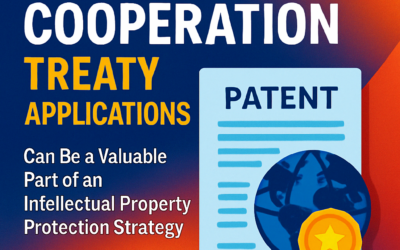The recent Supreme Court ruling in Matal v. Tam (2017) has been all over the news, primarily due to the likely effect of the holding on the Washington Redskins trademark. However, this overblown coverage has missed the forest for a single tree.
This case should be celebrated as a win for free speech and public discourse rather than an endorsement of potentially offensive or disparaging trademarks. Considering the trademark at issue in Tam, the decision encourages the use of the market as a means for political speech, and facilitates the ability of both producers and consumers to speak with their wallets.
The trademark application being considered in the Tam case was an example of an artist acting to “reclaim” a derogatory term. Tam and his fellow band mates sought to register the name of their band, “The Slants,” which they used in conjunction with songs skewering racist stereotypes about Asian Americans. They selected the name in an effort to use a term which had been used to offend them in a positive way, and they sought to register the name as a trademark as many bands do.
However, their application was rejected on the grounds that the name was barred from registration under the disparagement clause of the Lanham Act. This clause compels the US Patent and Trademark Office (USPTO) to reject any application for a mark “which may disparage or falsely suggest a connection with persons, living or dead.” In applying this clause, the USPTO considers the content of a mark, and decides to reject or allow the mark based on an objective viewpoint of the speaker. Positive implications regarding persons living or dead are allowed, while negative ones are not.
In response, the Supreme Court unanimously held that the disparagement clause violates the First Amendment of the Constitution, as it is an overbroad restriction on the speech elements of trademarks. Regardless of the fact that the government is involved in registering and enforcing trademarks and the fact that trademarks are used in commerce, the Court held that the freedom of speech is too important a freedom to be restricted in such a manner.
As a result, the Washington Redskins trademark case will almost certainly succeed in its appeal, a ruling which surely comes as a disappointment to those Americans who feel the name should be changed. However, this result may obscure the larger implications of the decision.
This opinion should be recognized as a win for the arts and free speech, for we have just seen the death of a form of censorship by way of viewpoint favoritism. Satirists, punk bands, and all manner of counterculture and avant-garde artists are now free to obtain trademark protections for brands which may disparage living or dead individuals. The Court has formally recognized the value in making these brands available, and left it to consumers to decide which brands to support. Bands like “The Slants” are now free to try to reclaim terms with full protections under trademark law. Satirists can produce publications with brands openly disparaging living individuals and have the same protections available as brands which openly praise those individuals.
Yes, as a result, it is also now possible to register marks which some may consider offensive or derisive of ethnic groups. But brands which use offensive trademarks are still subject to regulation through traditional means – collective market action. The burden is now on consumers to pass judgement on disparaging marks. And this burden seems the best embodiment of the First Amendment.







